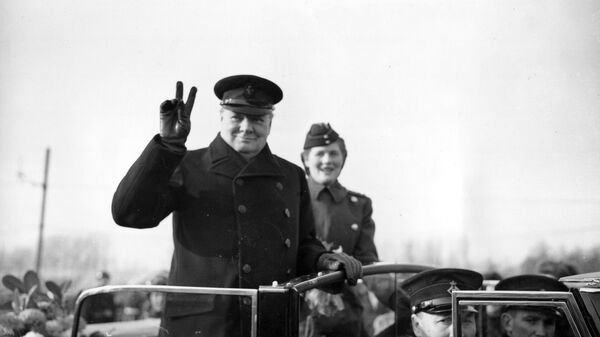The British military’s planning for a possible attack on the Soviet Union was concocted as part of London’s desperate search for a way to save the British Empire from collapsing and to regain the UK’s role as the hegemon of the Western World, Igor Shishkin, a Russian historian and specialist in 20th century diplomatic history, says.
A Proposal So Incredible, It Was ‘Unthinkable’
In early 1945, as the Second World War in Europe drew to a close, Prime Minister Winston Churchill commissioned a contingency plan for the invasion of the Soviet Union. The plan, drafted by the British Armed Forces’ Joint Planning Staff, was presented to Churchill on May 22, 1945, two weeks after the end of the war in Europe, and dubbed “Operation Unthinkable.”
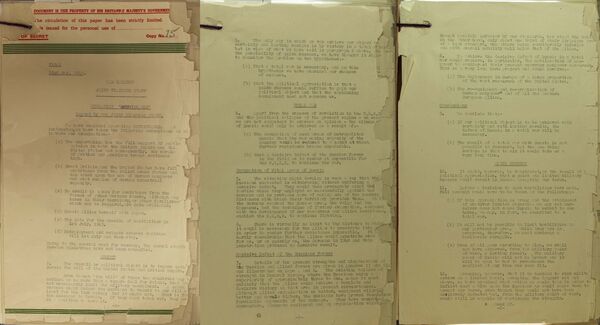
The plan envisioned attacking the USSR on July 1, 1945, making use of 47 British and US combat divisions, elements of the Polish army, as well as 10-12 German divisions formed from the remnants of the Wehrmacht. It was assumed that “Russia,” the planners’ name for the USSR at the time, would ally itself with Imperial Japan.
The operation’s overall objective was “to impose upon Russia the will of the United States and British Empire,” with planners warning that if “a quick success” were not to “induce the Russians to submit to our will,” they would face “total war.” The plan necessitated “the occupation of such areas of metropolitan Russia that the war making capacity of the country would be reduced to a point at which further resistance became impossible,” and/or “such a decisive defeat of the Russian forces in the field as to render it impossible for the USSR to continue the war.”
Planners cautioned that “there is virtually no limit to the distance to which it would be necessary for the Allies to penetrate into Russia in order to render further resistance impossible,” indicating that “it is hardly conceivable that the Allies could penetrate even as far as, or as quickly as, the Germans in 1942.”
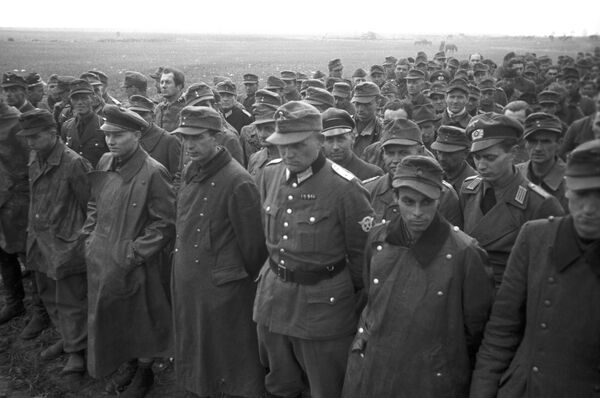
The military added that the existing balance of forces in Europe at the time was such that the Soviets enjoyed a numerical superiority of approximately three to one, making “it most unlikely that the Allies could achieve a complete and decisive victory in that area in present circumstances,” even despite the Soviets’ “inferior” troop quality and lower mobility compared to the Western Allies, unless “a large portion of the vast resources of the United States” were deployed to Europe, and vast numbers of Germans and other Western European peoples were successfully reequipped, reorganized, and mobilized.
Fortunately, the plan was never implemented, and since its existence was revealed to the public in 1998, historians have debated on whether Soviet military intelligence was aware of the plan. One hint suggesting that Moscow knew was that, on June 29, 1945, just days before the plan called for the operation to begin, the Red Army inexplicably reorganized its units’ positions and changed their dislocation.
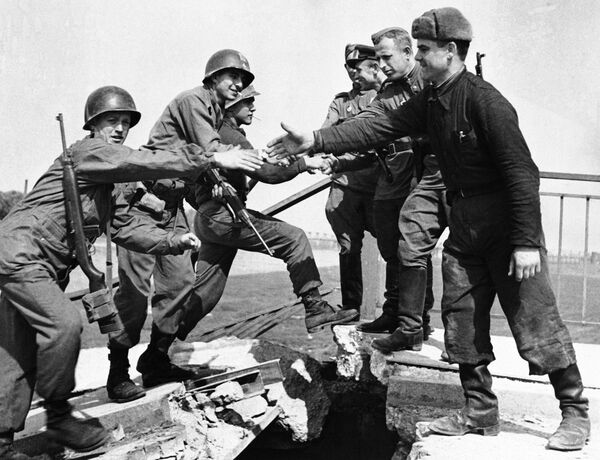
Not So Unthinkable
“Notwithstanding the operation’s name, there’s nothing ‘unthinkable’ about it,” Dr. Shishkin, a specialist in international relations during the Second World War, said. “It was predictable and probably expected by the Soviet leadership.”
According to the professor, there were many hints littered throughout Churchill’s career which made the formulation of such a plan possible. For instance, “immediately after the First World War, Churchill proposed sending the defeated Germans to conquer Russia, saying no one but the Germans would be able to conquer the country, which was in the midst of a civil war at the time. So in 1945, London’s idea of using the Germans, with whom the British had just fought against its wartime ally – Russia, was not some kind of innovation. This was Mr. Churchill’s idea back in 1918,” Shishkin noted.
“Take another example: at the very end of the Tehran Conference in 1943, and this has been documented, in a conversation with his entourage, Churchill said that it was likely that as soon as Germany was defeated, the UK should expect an even more terrible and bloody war. I think everyone understands whom Churchill was predicting a war with,” the professor added.
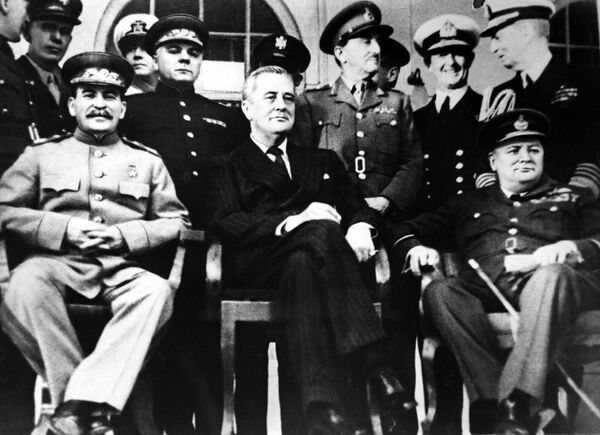
In fact, strictly logically, the concoction of a plan like Operation Unthinkable was not unexpected of shocking, but “a completely natural action, from the point of view of Churchill, who represented and served the eternal British elite interest in global hegemony.”
The concoction of a plan for a war against the USSR in the form of an Operation Unthinkable was inevitable, according to the historian, because going far back as far back as the end of the First World War, Britain turned out to be “a triumphant loser,” with the war draining the country economically, leading to the loss of a quarter of its total wealth, a 12-fold rise in public debt, turning the Empire into a debtor to the United States on the verge of bankruptcy.
“On top of that, after the October Revolution and civil war in Russia, the Soviet Union appeared on the world map, and sympathies for it grew throughout the world, while national liberation sentiment also grew in the British colonies. In this way, the USSR and the USA became England’s mortal enemies,” Shishkin argues.
This helps to explain London’s support for the Nazis during the first years of Hitler’s rule as well, Shishkin noted. “Britain’s war plan was clear: Germany would unleash a war in the East against the Soviets, they would grind each other down, and then the UK would finish off the winner with France’s help. Thus, both the inhuman Nazi regime and Soviet Bolshevism would be eliminated, and London would have the undeniable right to be considered hegemon of the West.” Unfortunately for London, after Munich in 1938, Hitler began to pursue an independent foreign policy, which ultimately led to the swallowing up of the rest of Czechoslovakia, the signing of the Soviet-German non-aggression pact, the invasion of Poland, and the invasion and occupation of France.
“In this way,” Shishkin argued, the post-war formulation of Operation Unthinkable “can be seen as an attempt to save the British Empire and, using London’s tried and true tactics, to push the Soviet Union and the United States into a confrontation. It was an attempt by the British to escape the prevailing situation. A new war would make it possible to change the balance of power. As to the fact that a new war would lead to the deaths of millions of people – when has such a thing ever concerned Britain’s elites?” the academic concluded.
